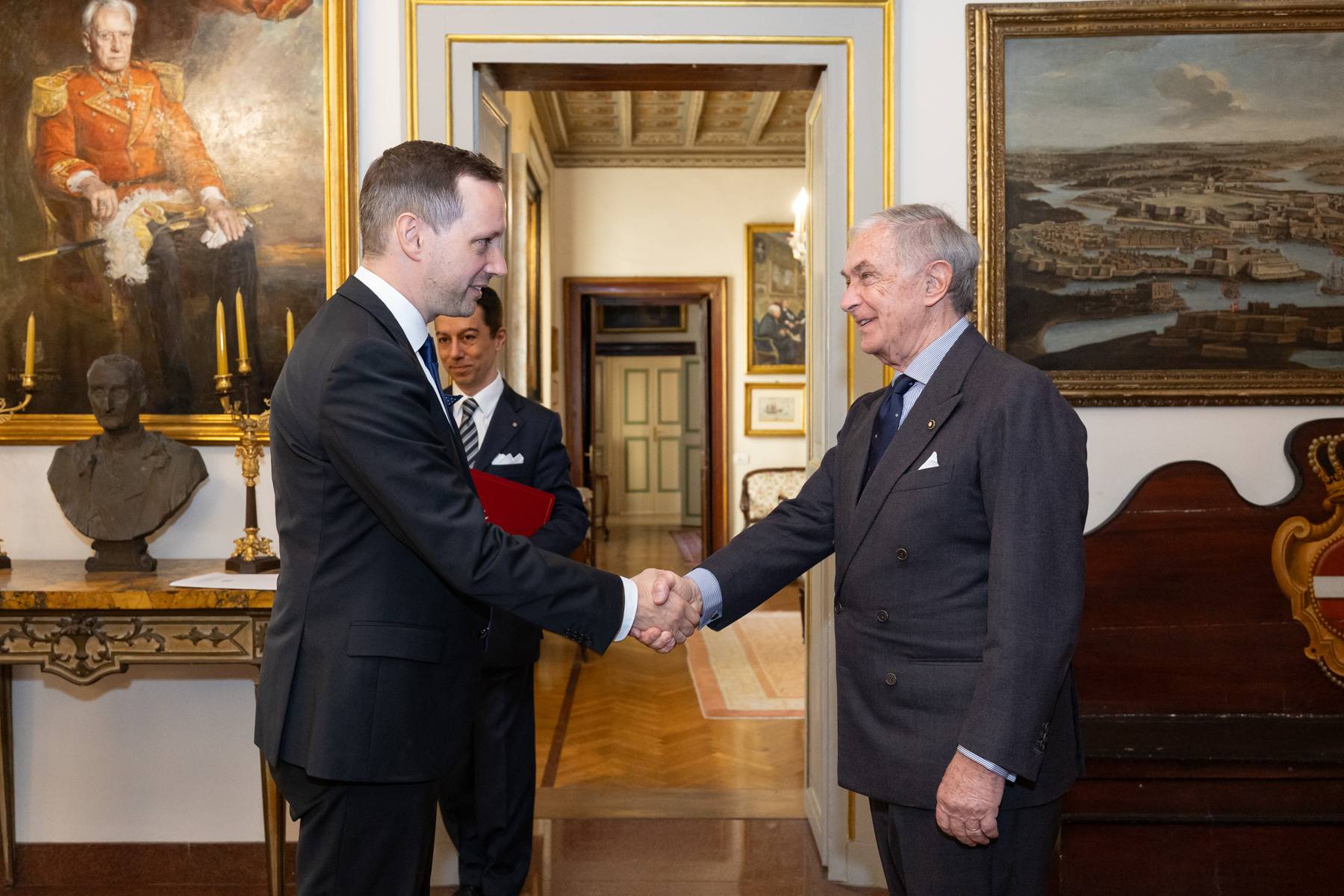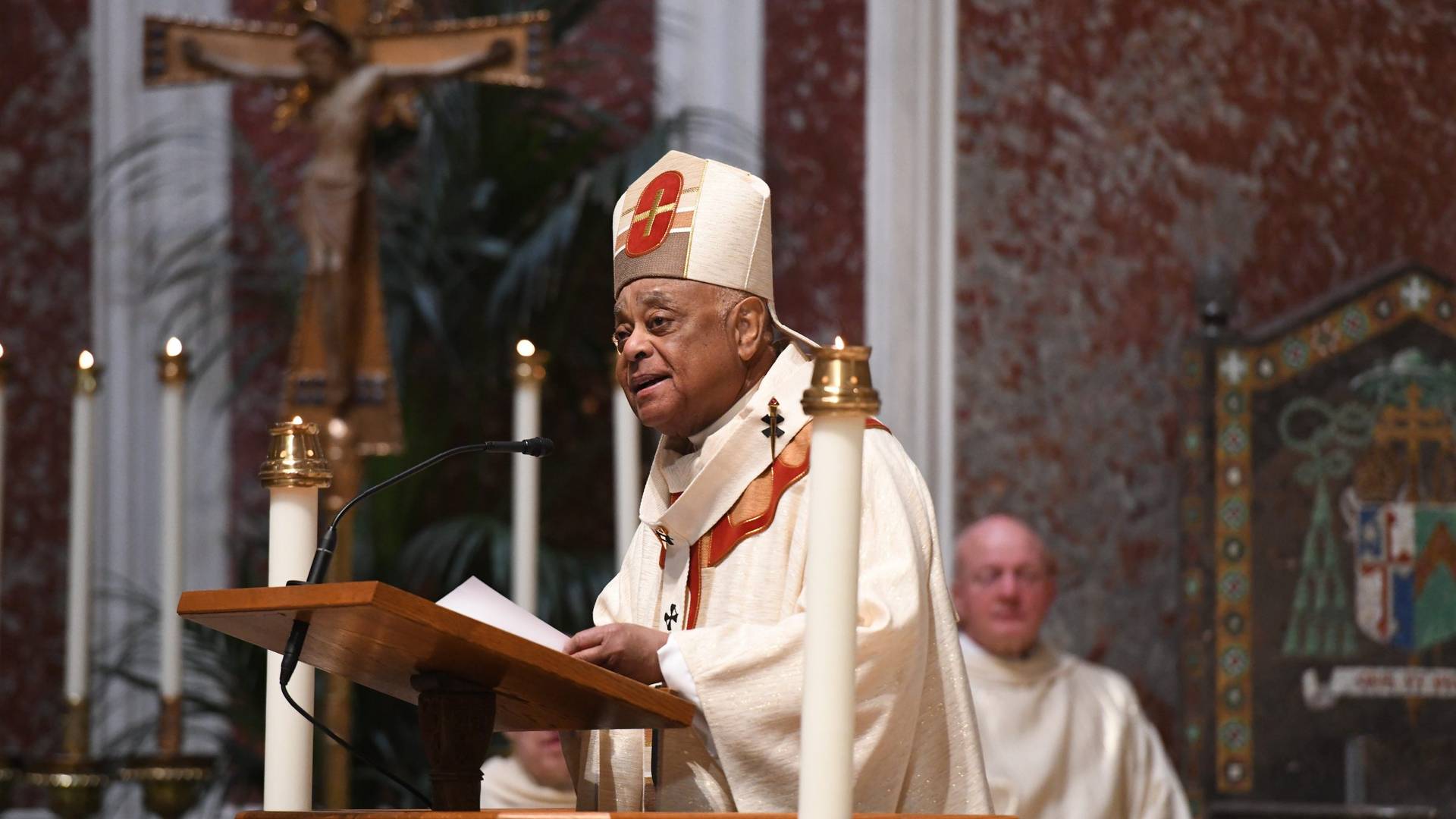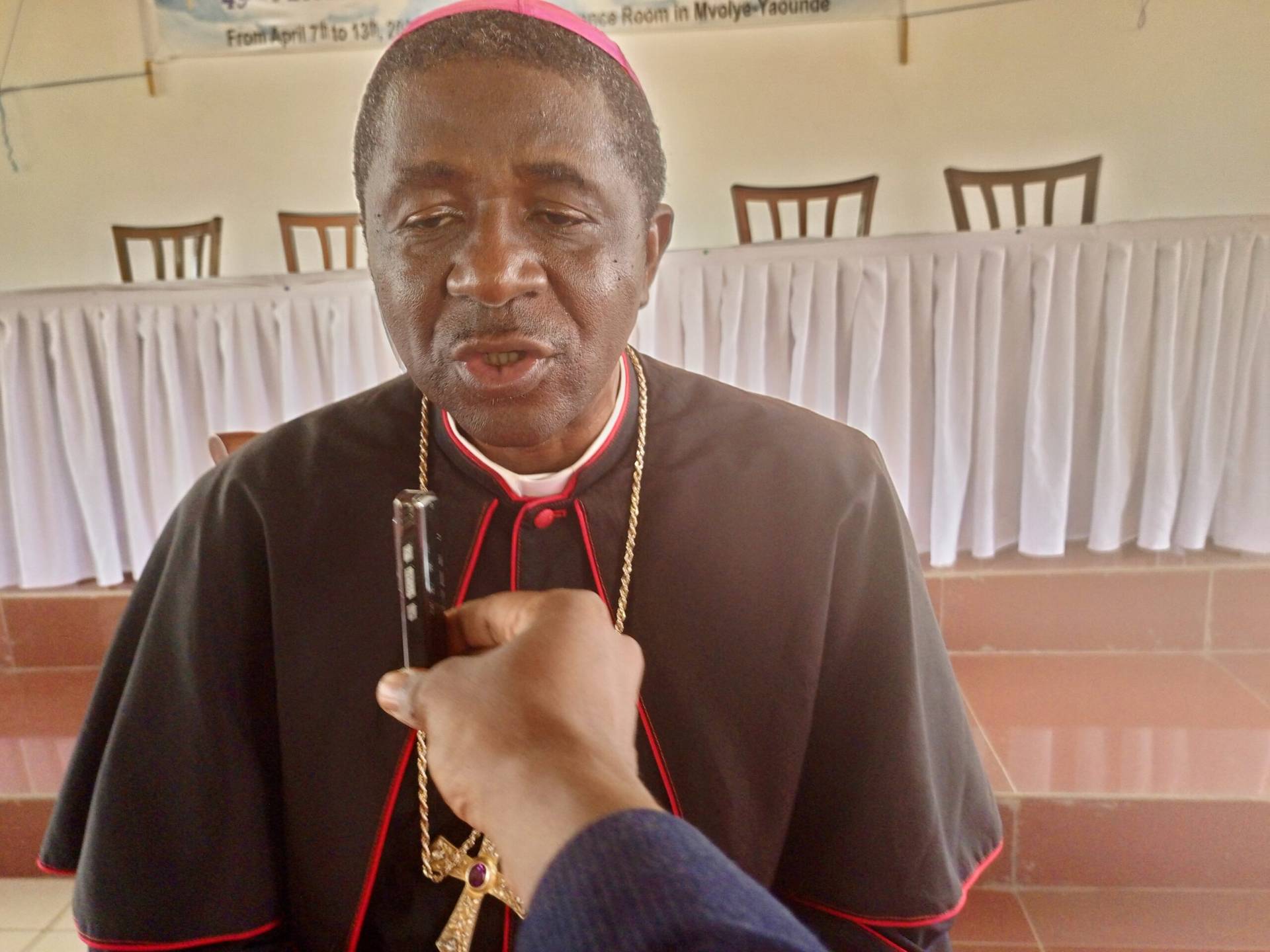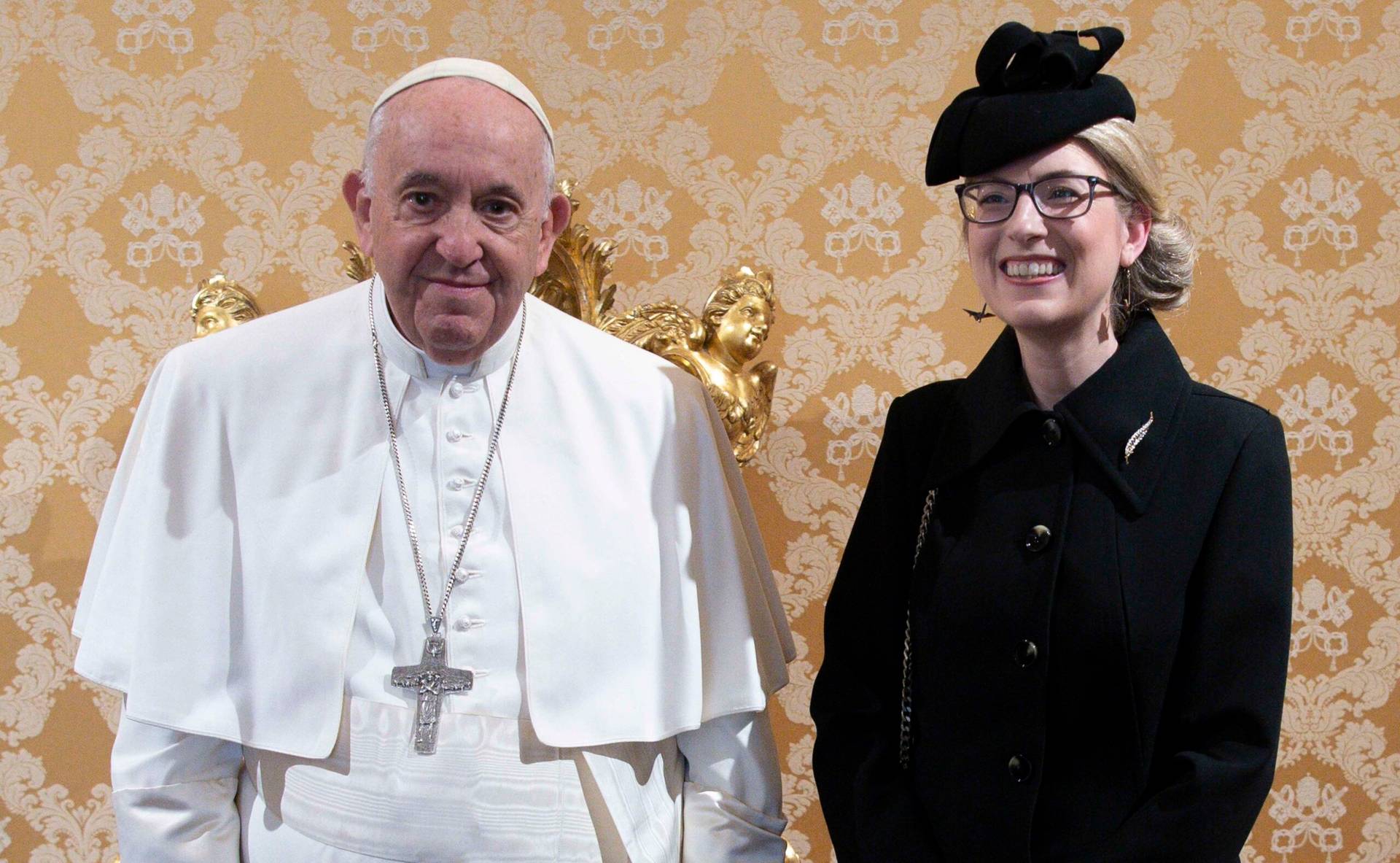DUBLIN – As Pope Francis heads to Dublin this coming weekend to close a World Meeting of Families that begins Wednesday, much of the attention has been on how he’ll tackle the clerical sexual abuse crisis, which has scarred the local Church here arguably like nowhere else in the world.
Some abuse survivors even called for Pope Francis not to come to Ireland Aug. 25-26, and several boycott initiatives have hit social media in recent weeks.
Yet Marie Collins, an abuse survivor who played a key role in uncovering predator priests by pushing for the 2009 Murphy Report, says that “I don’t object to the visit,” nor does she question those who, having held on to their faith, want to attend the papal events.
She did say, however, that she’ll be paying careful attention to what the pope has to say.
“I do feel that as a country that has been devastated over the last 20 years by revelations about clerical sexual abuse, it’s extremely important that when he comes here, of all places, he doesn’t ignore the issue,” Collins told Crux on Sunday.
The pope’s motive for coming to Ireland is the World Meeting of Families, and Collins argues that nowhere does this crisis hit as close to home as in families.
“It would be appropriate that while he’s here talking to families from all parts of the world, he addressed the issue,” she said, adding that she doesn’t want “a lot more apologies,” but to know what Francis “is going to do and how soon he’s going to do it.”
Crux spoke with Collins in Dublin, ahead of the World Meeting of Families, where she will be on a panel on safeguarding children that should have been moderated by American Cardinal Sean O’Malley of Boston, but last week he pulled out to address allegations of abuse in his own diocesan seminary.
The conversation took place before Francis issued a 2,000-word letter to the People of God on the abuse crisis. The following combines remarks Collins made in an interview for the Crux site, and also for “The Crux of the Matter” program on the Catholic Channel Sirius XM 129 that airs Mondays at 1:00 p.m. Eastern Time.
Crux: Many Catholic families would like to trust the institution again. Is there something that Pope Francis can say or do to help?
Collins: I don’t know. I reflect that position, because that is really where I am. I haven’t lost my faith and my belief in God and the basic teachings of the Catholic Church, but I have no faith in the institutional hierarchical Church. And that’s where a lot of people are.
I think that to restore faith, trust and respect, he has to show that there’s no place in the Church for members of the hierarchy who in any way facilitate or enable for abuse to happen. Because as long as that goes on, and those men who allow abuse are facilitated to remain within the Church or in positions of leadership within the Church, respect will not be restored.
The only thing that will restore respect is to see those men properly dealt with by the Church in an open and clear manner, and to have consequences for their actions that are strong and public. They need to prove that the Church is serious in cutting [abuse] out of the Church.
Without airbrushing the Church’s responsibility, how important is it for society at large to demand civil authorities to act?
Church and state were very intertwined here, and in many cases the state should have intervened. They were in many ways similarly negligent. I don’t think that, in any way, the fact that the state behaved badly and did not protect the children of the country allows the Church off the hook. But I would equally condemn them. If a young girl ran away from a Maryknoll home, she was brought back by the police and handed off to the nuns. You cannot stand over that either.
But at least here, the state authorities, when all this blew up, put in a new children protection law and mandatory reporting. They have acted. Why the Church can’t do the same, I don’t know. It’s very hard to Catholics who want to trust their Church, and who want to be able to pursue their religion without the failures within their own Church coming out day after day.
I think that a lot of people here, and I would be one of them, believe in God but they really don’t have respect or belief in the hierarchical institutional Church. And to get that back, it has to do something. The words, the apologies, are becoming meaningless, because we’ve heard them now for so long. Nothing will change people’s view of the Church but firm action.
And they have to see that. They’re blind if they don’t.
A recently released report from Chile shows that 39 percent of women and 18 percent of men from Santiago recognize having been victims of child abuse. It’s a lot more pervasive than we dare talk about…
In this country it’s the same. The number of people who come forward is only the tip of the iceberg. And the number of times when a criminal case follows is even smaller still. At least the statute of limitations is different here. In the U.S., the Church is fighting the statutes of limitations being extended.
I find that very difficult, because on one hand they’re saying they want accountability and for these [abusive] men to be accountable, but at the same time they’re fighting the extension of the statutes of limitations, which is preventing accountability.
In early September, newly appointed Catholic bishops will be in Rome for a two-week boot camp, often dubbed “baby-bishops’ school,” and you’ve spoken at it twice. Can you tell us about that experience?
Originally, the Commission [for the Protection of Minors] found out that although bishops came to Rome every year for two weeks for the training, they had no module on preventing abuse and safeguarding. That was right up until 2015. And that blows the mind when you think about it, so we recommended that they have some training.
We offered to do it, but we were refused, presumably by the Congregation for Bishops, and instead they brought in [French] Monsignor [Anthony] Anatrella.
Anatrella he’s been suspended over allegations of abuse himself and caused an uproar for saying bishops aren’t obligated to report clergy abuse to the civil authorities…
I think after that there was a re-think and the powers that be decided that the commission could be involved, so in 2016 and 2017 we had a spot at the bishops’ training. One hour, and of that I get 10 minutes, but the best part is the Q&A section which I feel is the real time of learning.
However, it was very disappointing to find out, both years, that although the bishops are there for two weeks, listening and studying, the module on safeguarding was positioned on the last night in the last hour before they went home.
It does show an attitude of mind of the importance and relevance that is given to this subject. This year, I believe, has been moved to a better slot. It just seems so begrudging in a way, that they’re ‘allowing’ us to do this, but it’s not important, so we’ll do it at the end of the day. It sends a message.
You’re going to be on a panel on Friday on safeguarding children that was supposed to be moderated by Cardinal Sean O’Malley of Boston, head of the Pontifical Commission for the Protection of Minors, who announced last week he won’t be coming. Did he let you know in advance he was pulling out?
Yes. All the panel members were informed as soon as he knew he wasn’t coming, and then the statement came out.
Have you been told who will be his replacement?
There will be no replacement. It will be a purely lay panel, and Baroness Sheila Hollins will be moderating. That’s OK, because she was one of the speakers, along with Barbara Thorpe, Gaby Di-Liacco and myself.
How important is it that the laity at large get involved in safeguarding?
I think it’s very important. Personally, I would have liked Cardinal O’Malley there because in the discussion section, I would have liked to have put some questions to him around how things are being handled and if he feels that’s how they should be handled, and we won’t get that opportunity.
On the other hand, the lay people who are involved are all perfectly capable, and it’s good to see, because most of the panels have members of the hierarchy moderating them. And particularly, we’ll be three females and one man, poor Gaby!
Outside of O’Malley himself, do you think it sends a message that there will be no other member of the hierarchy there to hear what you have to say?
I certainly would like to have seen some member of the hierarchy be part of the discussion and why not part of a panel with a lay person chairing it. I don’t think that it has to be the member of the hierarchy chairing it. That is something we see all the time, this sort of superiority view, if there’s lay people there that’s fine, but they can’t possibly be allowed to be in the chair. It’s a pity.
I hope that from the point of view of attendees, it doesn’t reduce attendance, because I think that a lot of families who are coming to the World Meeting of Families are maybe more inclined towards a more conservative view and they might want to come and hear a cardinal speak. They may not be as interested in hearing members of the laity speak, and it would be sad if that were the case.
Since the sex abuse crisis as we know it erupted in 2002 with Boston and Ireland in 2009, there’s been a lot of water under the bridge. How do we still find ourselves here?
I think that’s a question that we can only ask the Church. Because year, after year, after year, we have revelation, after revelation, after revelation, and it goes on, and on, and on. And the resistance to look at it, to change it, to ensure that we’re not still going to be talking about it in another two decades, the only people who can do something about it are actually those at the top in the Church.
And I think the attitude I saw when I was working with the commission in Rome was “this will all go away, this will all pass.” And that is delusional really. The idea that what’s happening in country after country is suddenly going to stop… What is going to happen, in my view, is that more and more countries are going to come forward, and as victims find their voices, it’s going to grow bigger.
It’s so short-sighted of the Church to sit and hope that it’s all going to go away, because I think they must be the only people in the world who think that it’s all going to go away. And still they’re so resistant.
It was recently revealed that there’s no child protection policy in Vatican City, where children pass through in thousands every day. There’s a junior seminary, there are altar boys. And when asked why there wasn’t a policy in place, they said they were still looking into it. In 2018, they’re still thinking about it?
I know that is just one specific place, but it’s indicative of this attitude of we do everything over centuries, why should we be any different about this? The reason why it needs to be different is the fact that children are being harmed every day of the week in different parts of the world, and if you do nothing to stop it, those numbers will continue to grow.
As a survivor, I don’t want to see one child harmed who can be protected. I want to see Church leadership not just allowed to resign and walk away, I want what they have done to be made clear, for them to receive a proper punishment for it, if necessary have their titles and positions removed and laicized if it’s serious enough, rather than just being allowed to walk away into the distance.
That’s why I’m fighting for reform. It’s for the Church, but also and more so for the children who are still at risk.
Some victims and survivors who come forward, fighting for change and reform, eventually walk away. You have not done that. Where does that staying power come from?
My priority has always been not to see other children suffer what I’ve suffered. I mean, 30 years of my life was devastated by the abuse that I suffered. And I do not want other lives be destroyed in the same way that mine was. And my belief is that by staying in the Church, I have a stronger voice in trying to get change.
If you leave and you’re outside, unfortunately you look to them as somebody who’s attacking the Church or looking down on them. While if you’re still a Catholic, you’re trying to hang in there and change things, you’re asking for change in your Church, you’re not trying to destroy your Church.
I have always been driven by the fact that I want to see children better protected. And I don’t want to see one child go through what I and so many others around the world have had to go through. How could anyone want to see any child experience those dreadful things we saw in the Pennsylvania report?
I suppose I hang in there because I have a belief in God, I’m guided by the Holy Spirit, I think. I try to hold onto my faith. It’s not easy as a survivor, because a lot of the time we come under a lot of pressure, because the question posed to us is “Why don’t you just get out.” But nobody is going to drive me out, neither the Church nor other people. I’m going to hang in there for as long as I can. It does not mean that I’m not tempted, I’ve been tempted many times to say I can’t do this anymore.

















